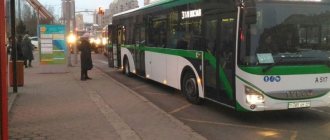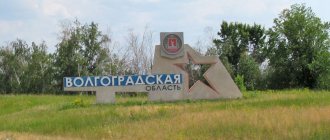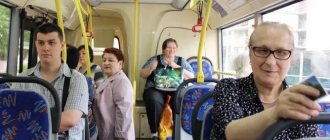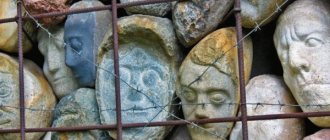The legal topic is very complex, but in this article we will try to answer the question “Payments to repressed Volga Germans in 2021.” Of course, if you still have questions, you can consult with lawyers online for free directly on the website.
- free travel on public transport (buses, trams, etc.);
- discounts on the purchase of prescription drugs (the specific amount is set at the city level);
- sending to sanatoriums on discounted vouchers (such citizens are always at the beginning of the queue, regardless of the time of application);
- assistance in placement in a nursing home;
- discounts on utility bills of 50%.
Reimbursement of the value of the property is carried out in cases where the property has been preserved, but it cannot be returned on the grounds provided for by law, or the rehabilitated person agrees instead of returning the residential building to reimbursement of its value, as well as in cases where the property has not been preserved, but there are documents on its nature, condition and quantity, on the basis of which the property can be assessed.
What benefits are provided to children of repressed parents in Russia?
Financing from the state budget involves payment in the amount of 10,000 rubles while in prison or a psychiatric institution. Compensation for the cost of purchasing new property is about 10,000 rubles. The regional budget annually allocates a certain amount of funds to help this category of citizens.
The key purpose of providing benefits is the opportunity to partially atone for the guilt of the Soviet government before the people. According to research scientists, many people were sent into exile or executed illegally. As a result, their children were left without parental care, and the 1941 war radically changed the life of the population.
- establish the fact of application of punitive measures to the person indicated in the application;
- explore the reasons for the decision;
- determine its legality;
- send the applicant a written response:
- on recognizing a person as unreasonably repressed;
- about refusal indicating the motivation.
Material payments
Since, in addition to the rehabilitated persons themselves, their children also suffered, and many were left orphans and without parental care due to incorrect judgments of the authorities, the Government of the Russian Federation assigned preferences to the children of people who suffered during the Soviet era.
Subjects of the Russian Federation have been granted broad powers to develop and implement social measures. Some of them are aimed at compensating the losses of illegally repressed citizens. Along with the usual ones (accepted throughout the country), the regions also offer other methods of support:
Despite the impressive numbers of victims, not all victims are entitled to restoration of rights. Some citizens were punished quite rightly. Each case is carefully examined to identify political motives on the part of the judges. And only those unjustly punished are subject to rehabilitation.
This is interesting: Kosgu system unit 2021
Some features of regional programs
- Treason to the Motherland, as is clear from the investigation materials;
- Those who have committed violent acts against the life and health of other persons:
- rapists;
- murderers;
- terrorists;
- demolitions and saboteurs;
- bandits and thieves;
- War criminals and spies;
- Punishers and other criminal individuals.
For information: the number of innocent victims is significantly reduced when an objective and impartial study of available materials is carried out.
- children who were sent into exile with their parents, to places of imprisonment or to special settlement colonies;
- children who were left without parental care due to persecution of the latter on political, national, religious grounds.
Citizens who suffered punishment from the authorities and the legislation of the Russian Federation
Federal Law No. 1761-1 implies a re-examination of cases from the archive in which people were subjected to causeless persecution from the country by the authorities since 1917. Such citizens were considered criminals under the laws in force at that time.
Various coercive measures were taken against them, including:
- Murder.
- Deprivation of liberty.
- Forced coercion to work.
- Referral to special medical institutions for forced treatment.
- Confiscation of documents proving citizenship.
- Persecution from the country.
- Expulsion from place of residence.
After the adoption of Federal Law No. 1761-1, all citizens who suffered from repression were given the opportunity to restore their civil rights, as well as receive financial compensation.
The category of citizens who suffered due to repression and have the right to rehabilitation include:
- Couples who are married.
- Children who were near their parents at the time of repression.
- Young children who lost their parents during the repressions.
- Parents of citizens who were deprived of life by court order.
- Parents of citizens who lost their lives in places of restriction of freedom or were in exile.
But rehabilitation for the listed groups of people may not take place if they took part in and organized the following:
- Espionage;
- Terrorist actions;
- Sabotage actions;
- Murders;
- Uprisings;
- Criminal groups.
As the law states, 90 days are allocated for the consideration and study of cases of rehabilitation of those citizens who suffered during the repressions. During this period of time, a detailed study of the repressions applied to citizens takes place. Such cases are usually dealt with by the prosecutor's office and the FSB. They have the right to send requests to the republics of the former Soviet Union to clarify all the circumstances.
ATTENTION !!! After the final decision on rehabilitation is made, the applicant receives written notification. As a rule, it can be either positive - the person is recognized as unreasonably injured, or negative - rehabilitation is denied for one reason or another. If the applicant does not agree with the decision, he has the right to go to court and appeal the refusal.
Benefits for repressed pensioners and children of victims of political repression
Preferences are given to those who, according to the law, have received benefits and received a special certificate. To do this, you need to contact the social protection authorities, having with you a passport, a rehabilitation certificate, as well as papers confirming the pensioner’s income.
When the application is submitted, employees of the authorized body will study the materials and carry out the following work for no more than 90 days: If the person who filed the application was recognized as a victim of repression and rehabilitated, he receives the right to receive various benefits.
The age group born between 1928 and 1944 is still quite large, so the exact number of eligible persons is unknown. I believe that the number of applications for payments will significantly exceed those included in the state budget. The Compensation Fund can and most likely will process applications on a first-come, first-served basis based on the date of receipt by the agency. Therefore, I recommend that interested parties do not hesitate to apply. Depletion of the Compensation Fund may result in its closure. Experience will determine whether all eligible claimants will be able to receive the compensation provided for by the government order.
- payments that are transferred every month;
- repressed pensioners will be given housing if they were evicted or forced to move out during the Soviet events;
- benefits related to citizenship, that is, if it was deprived, it can now be quickly restored;
- persons whose civil rights have been infringed are fully restored to their titles and freedoms, and also receive back awarded awards and titles;
- compensation of 50% of utility bills;
- free travel on public transport or the opportunity to return money spent on tickets;
- monetary compensation for railway travel – once a year;
- free installation of a landline telephone and reimbursement of subscription fees;
- free orthopedic prosthetics;
- reimbursement of expenses for medicines;
- out-of-turn appointments in state medical institutions;
- out-of-turn admission to a nursing home;
- fuel benefits, that is, a refund of half the money spent on heating (if there is no central heating).
The government guidelines came into force on July 7, 2016 (Bekanntmachung der Richtlinie über eine Anerkennungsleistung an ehemalige deutsche Zwangsarbeiter, ADZ-Anerkennungsrichtlinie). Eligible applicants include persons of German nationality or German citizens who were forced by a foreign state to perform forced labor between 1 September 1939 and 1 April 1956 on the basis of their German citizenship or German nationality. Upon self-application, an eligible applicant of German nationality may receive a one-time compensation of EUR 2,500.[2]
To satisfy the expected claims, 50 million euros have been allocated to the Federal Budget. This amount is enough to pay 20 thousand compensations of 2,500 euros. Contacts to the Fund can be expected from Yugoslav, Hungarian and Romanian Germans. The right to submit an application is reserved for former Imperial Germans who, after 1945, were taken to forced labor in the USSR. The largest group of potential recipients of the Fund's funds remain Russian Germans from Germany and the countries of the former USSR.
You may be interested in:: The Tenant Checked Out And Doesn’t Want To Give A Warrant For The Apartment
Information about the echelons is taken from the book: “Herman A. German autonomy on the Volga. 1918-1941. Ed. 2nd, corrected and supplemented. M.: “MSNK-Press”, 2007, p. 493-505." The names of the districts given by Arkady German in the table “The final stage of the operation to evict Germans from the Volga region from September-October 1941” (p. 497-505) were amended by the database developers taking into account information provided by Victor Diesendorf.
How to fill out an application for the restoration of a citizen’s rights
An application indicating a request for rehabilitation must be filled out in a specific form approved by order of the Ministry of Internal Affairs of the Russian Federation No. 1165 of November 23, 2011. You can obtain the form at any branch of government bodies of the Russian Federation to which you can send an application. The application should contain as much information as possible.
You need to start filling out your application with a header that states:
- Full name of the government agency to which the application is sent;
- Full name of the applicant;
- Applicant's residential address (in full).
After completing the header, you must proceed directly to the description of the petition, starting with the word “Application” in the middle, and continuing with a new paragraph.
The following information should be provided:
- Petition for rehabilitation;
- Who is asking for rehabilitation - full name, date of birth, where he lived before the sentence was imposed, place of exile, at what time and for how long;
- Who suffered along with the applicant. List each family member and their date of birth;
- What documents or certificates are attached to the application?
After describing all of the above information, you must certify the application with a personal signature and date.
Types of benefits available
If a government body officially recognizes a victim of repression as rehabilitated, then she is entitled to the benefits and preferences established by law. Rehabilitated citizens may claim various rights.
Primarily, they may require satisfaction of a moral nature, namely:
- Return of titles taken from them.
- Return of insignia (awards).
- Refutations of data about their activities against the state (publicly).
Material benefits
Citizens who have faced punishment from the authorities and have received rehabilitation also have the right to financial compensation for the losses they suffered, namely:
- Receipt of housing from the state, if it has been established that it was previously taken away due to the actions of the authorities.
- Receive compensation in the form of money if:
- The victim was in a place of restriction of freedom or a psychiatric hospital. The amount of compensation is not more than 10 thousand rubles;
- The victim has lost his property and there is no way to get it back. Compensation not more than 10 thousand rubles.
- Receiving social preferences of various types.
Topic: Payments to repressed Volga Germans in 2021
Financing from the state budget involves payment in the amount of 10,000 rubles while in prison or a psychiatric institution. Compensation for the cost of purchasing new property is about 10,000 rubles. The regional budget annually allocates a certain amount of funds to help this category of citizens. They came here in the 50s and 60s, mainly from places of deportation in the Krasnoyarsk and Altai territories, Kazakhstan, as well as from Azerbaijan, the Moscow and Gorky regions, where they were resettled in a special settlement. In the city of Oktyabrsky, their permanent meeting place is the national cultural center (“Renaissance”), formed in 1992 after the collapse of the USSR. The main activities are cultural and educational events.
This is interesting: Is there a ban on the sale of energy drinks to minors?
The head of the Wiedergeburt Center for National Cultures is Voldemar Aleksandrovich Greb. He was born in the village of Winzemiller, Zelman district of the Autonomous Soviet Socialist Republic, NP in 1937. He came to Oktyabrsky in 1946 as a nine-year-old young man from the Krasnoyarsk Territory after a five-year stay with his parents in the Balakhtinsky region. On January 15, 1942, Voldemar Alekandrovich’s father and aunt were taken to the labor army.
Society and privileges
Rehabilitated citizens have the right to receive preferences of both federal and regional types.
As a rule, they are entitled to the following benefits:
- 50% discount when paying for housing and communal services. The discount also applies to the purchase of solid fuel and liquefied gas.
- Receive a free travel pass valid for all types of city transport.
- Priority purchase of vouchers to medical and recreational institutions.
- Free placement with aged care organizations.
- Discount on the purchase of medicines if you have a prescription from a doctor. Each region of Russia has its own discount.
What law regulates benefits for children of repressed Germans?
Children of those repressed on the basis of nationality do not have benefits, which follows from the provisions of the RSFSR Law of April 26, 1991 N 1107-1 (as amended on July 1, 1993) “On the rehabilitation of repressed peoples”, as well as the Russian Federation Law of October 18, 1991 N 1761-1 “On the rehabilitation of victims of political repression”, with the exception of material damage in the form of confiscated property (Article 12 of the Law of the Russian Federation of October 18, 1991 N 1761-1), in this case it is necessary to be guided by Article 16-1 of the same law
If it is impossible to return the preserved property to the rehabilitated persons, its value is reimbursed in accordance with the assessment made in the prescribed manner, but in the amount of no more than 4,000 rubles for property without residential buildings or 10,000 rubles for all property, including residential buildings. The cost of unpreserved property is reimbursed in the same amount. In cases where the fact of confiscation, withdrawal or withdrawal of property from possession in another way is established, but documents on the nature, condition and quantity of this property are missing or lost, monetary compensation is paid in the amount of up to 4,000 rubles for property without residential buildings or 10,000 rubles for all property, including residential buildings. In the event of the death of rehabilitated persons, the return of property, reimbursement of its value or payment of monetary compensation is made to their heirs according to the law of the first priority. The return of property, reimbursement of its value or payment of monetary compensation is made to rehabilitated persons at the location or sale of this property at the time of repression, regardless of where the rehabilitated persons were repressed and currently live. Decisions made by the relevant authorities on the return of property, reimbursement of its value or payment of monetary compensation are not subject to revision, and the amounts paid are not subject to recalculation. Applications for the return of property, reimbursement of its value or payment of monetary compensation must be submitted within three years after the entry into force of this Law, and in the case of later rehabilitation - within three years from the date of receipt of the document on rehabilitation. Decisions on the return of property, reimbursement of its value or payment of monetary compensation are made by executive authorities of the constituent entities of the Russian Federation, local government bodies on the basis of the conclusions of commissions for the restoration of the rights of rehabilitated victims of political repression, formed in accordance with the Resolution of the Presidium of the Supreme Council of the Russian Federation “On Rehabilitation Commissions” victims of political repression."
This leads to the fact that the benefits of the repressed are not actually used; people spend their personal money on drugs at the pharmacy, purchasing them at full price. Legal experts say that in such a situation it is necessary to obtain a prescription from a doctor and then apply for assistance to social protection.
You may be interested in:: Who is entitled to Seats for Disabled People in Lastochka Moscow Smolensk
In accordance with the Law of the Russian Federation “On the Rehabilitation of Victims of Political Repression,” persons who have been subjected to repression in the form of imprisonment, placement for compulsory treatment in psychiatric institutions and rehabilitated in the prescribed manner are paid monetary compensation.
Pension benefits
A victim of repression who has been subjected to imprisonment has the right to include the time spent in prison in the work experience when the pension is calculated. This is stated in Federal Law No. 173.
There are several special periods that can be credited to work experience:
- Man was in the colonies;
- The victim was taken into custody;
- The man was in exile;
- The victim was in the colonies for settlement.
In addition, an old-age pensioner who has become a victim of pressure from the authorities may be credited with the listed special periods in three times the amount if he chose the legislation that was in force previously to assess his rights. Also, every rehabilitation pensioner has the right to receive one-time cash payments in addition to old age support.
Tax Code of the Russian Federation and preferences for rehabilitated citizens
As the Tax Code of the Russian Federation and certain laws of the Russian Federation state, citizens who have been subjected to political violence have the following benefits:
- Exemption from payment of property tax (if the property is owned).
- Receiving material assistance - food, clothing, personal hygiene items and cash.
- Receiving reimbursement for travel to recreation and treatment areas. Issued only twice a year.
- Receiving unpaid leave of up to two weeks (for those working).
- Receiving unpaid leave of up to 35 days (for people who participated in the Second World War).
- Receiving unpaid leave of up to 60 days (for people classified as disabled).
IMPORTANT !!! The law also provides for separate benefits for citizens whose age exceeds 80 years. They have the right to receive double the amount of the insurance portion, as well as complete overhaul of the home absolutely free of charge. Rehabilitated citizens who permanently reside in the north of the country have the right to receive compensation for travel on vacation, which is paid twice a year.
Benefits of repressed Germans
So, in Moscow you can: count on travel in suburban and city transport at the expense of the state; pay 1/2 of the cost of housing and communal services; receive compensation for the cost of telephone calls in whole or in part (on a landline phone) or install it for free. There are also other federal benefits, for example, the provision of certain medications or travel to health centers once a year free of charge.
Get compensation and benefits
The applicant must prove or credibly explain his participation in forced labor at the direction of foreign authorities. In the unfavorable conditions of that time, many documents were confiscated, destroyed by the owners themselves, or could not be issued due to objective circumstances. Work in a special settlement and in the Labor Army was often not recorded in the employee’s work book. Something was lost over the years and during the resettlement to Germany, some did not bother to document their work in the Labor Army in a timely manner. Clarification of the circumstances of the war and post-war periods can often be proven by personal, reliable explanations and testimony of still living witnesses.




